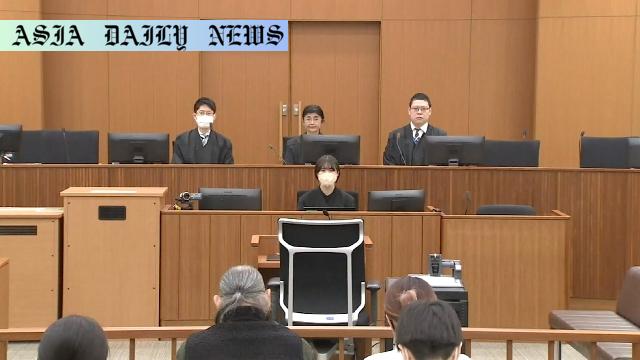Explosive Incident – A man who threw a homemade explosive device near Prime Minister Kishida faces a 15-year jail term proposal.
- Prosecutors demand a 15-year jail term for Kimura Ryuji after an explosive attack on PM Kishida in Wakayama, Japan.
- Kimura is charged with attempted murder and violations of the Explosives Control Act.
- Prosecutors argue this was an act of terror targeting democracy, injuring two people.
- Defense advocates for leniency, asserting reduced intent and seeking a 3-year sentence.

Introduction: The Explosive Incident Targeting the Japanese PM
In a shocking and rare act of violence in Japan, prosecutors have demanded a 15-year jail term for Kimura Ryuji, a 25-year-old man accused of throwing a homemade explosive device near then Prime Minister Kishida Fumio. The incident, which occurred in April 2023, sent shockwaves across Japan, a nation with one of the strictest handgun laws and low rates of violent crime. Kishida, who was visiting Wakayama City to campaign for a candidate in a Lower House by-election, narrowly escaped unharmed. However, two people suffered injuries from the explosive and its fallout, sparking outrage and raising questions about the safety of public figures during election campaigns.
The Prosecutor’s Argument: A Case of Intentional Terrorism
During the ongoing trial at the Wakayama District Court, prosecutors have painted a grim picture of Kimura’s motivations and methods. Referring to expert testimony, they emphasized that the steel pipe filled with gunpowder—1,500 times the quantity found in a typical firecracker—was designed to be lethally effective. They argued that this choice of material underscored a clear intent to kill. Prosecutors dismissed Kimura’s claims of aiming only to draw attention, suggesting that less dangerous alternatives such as firecrackers could have been used. Instead, they categorized his actions as an act of terror, aiming not only to harm a sitting head of government but also to disrupt and potentially destabilize democratic processes in Japan. By demanding a 15-year prison term, prosecutors signaled the severity they attribute to the crime and its implications for the nation’s political stability and public safety.
The Defense’s Stance: A Plea for Leniency
On the other side, Kimura’s defense team sought to reduce the charges and term, arguing their client had no genuine intention of causing harm. They highlighted gaps in the prosecutors’ testing, stating the explosive’s lethality was measured only within two meters of where it landed. The defense claimed that Kimura believed the smoke emitted before the explosion would prompt the crowd to disperse, thus mitigating its impact. His defense lawyers have urged the court to consider charges of mere bodily harm instead of attempted murder. They further stressed Kimura’s expressions of remorse and his willingness to rehabilitate, proposing a considerably reduced term of three years in prison.
Implications for Democracy and Public Safety in Japan
The incident has sparked widespread discussions in Japan about political security and the dangers posed to public figures in open election campaigns. Prosecutors called the incident a “heinous crime,” labeling it a serious threat to the foundation of democracy. Japan, frequently lauded for its stringent security measures, now faces increasing pressure to focus on comprehensive strategies to further secure its election processes without hindering the accessibility of its candidates to the populace. The judiciary’s decision in this case could set a precedent not only for the treatment of such cases in the future but also for the broader conversation on balancing freedom and security in democratic settings.
Awaiting the Verdict
The court is expected to hand down its ruling on February 19, and its decision will undoubtedly reverberate through Japanese society and beyond. Prosecutors have made a compelling argument about the gravity of the crime, emphasizing its potential impact on democracy and public safety. Meanwhile, the defense’s appeals for leniency pose important questions about intent, remorse, and the rehabilitative purpose of the criminal justice system. Will the court lean towards a harsher punishment as a deterrent, or will it opt for leniency and rehabilitation? Japan and the world wait in anticipation.



Commentary
Introduction: A Significant Case in Japanese Legal History
Japan is typically regarded as a nation where such violent incidents are exceedingly rare. The latest attack on a public figure, near then Prime Minister Kishida Fumio, is a sobering moment that underscores evolving threats in even the safest societies. This case is of considerable importance not just because of its unusual nature, but also the critical conversations it opens about democracy, safety, and judicial consequences.
The Debate Between Punishment and Rehabilitation
The trial of Kimura Ryuji is a case study in the delicate balance between justice and mercy. On one hand, there is the prosecutor’s strong argument emphasizing societal deterrence, security, and the gravity of the crime. On the other hand, the defense raises compelling points about remorse, intent, and giving a young individual a chance to reintegrate positively into society. The clash between demands for a 15-year sentence versus a 3-year term mirrors larger philosophical debates: Should justice be retributive, or rehabilitative?
Implications for Democracy and Societal Security
This incident puts the spotlight on the inherent risks of democratic practices such as open campaigning. Ensuring the safety of public figures while maintaining accessibility is a tightrope that many democracies must navigate, and this case could become a reference for other nations grappling with similar challenges. Clearly, there is a need for practical security reforms without stifling the freedoms that underpin democracy.
Conclusion: A Case to Follow Closely
As the Japanese judiciary prepares to deliver its verdict, this case serves as a potent reminder of the fragility of both safety and democratic practices. The outcome will likely shape public trust in the legal and political systems, making it an essential matter to monitor. Whatever the verdict, one hopes it will reflect thoughtful consideration of all the nuances surrounding this crime.